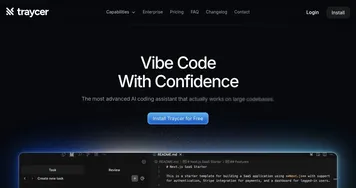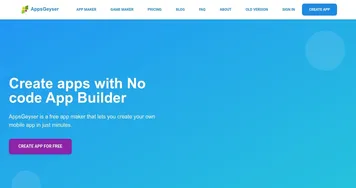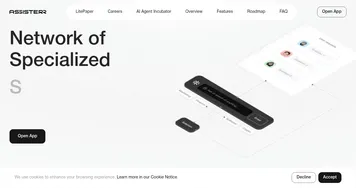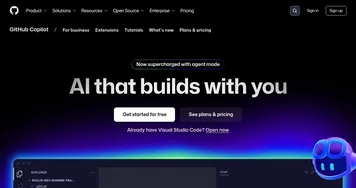Requesty
Requesty is a unified LLM platform that routes API requests to over 300 models from providers like OpenAI, Anthropic, and Google, optimizing for performance and cost. It integrates with existing workflows — requiring only a base URL change in clients like OpenAI’s SDK. The platform supports Python and JavaScript, offering features like Smart Routing, observability, and enterprise-grade controls. Its 99.99% uptime SLA ensures reliability, with failover mechanisms switching providers in under 50ms.
Smart Routing automatically selects the best model based on task requirements, cost, or availability. For example, a request for OpenAI’s GPT-4o or Anthropic’s Claude 3.5 Sonnet is routed to the most efficient provider. Observability tools provide real-time metrics on latency, cost, and model performance, accessible via a dashboard. The Approved Models feature allows admins to restrict teams to a curated model list, ensuring compliance and cost control.
Users appreciate the platform’s cost optimization, with reports of up to 80% savings through intelligent routing and caching. The Model Library, accessible after login, lists over 300 models, filterable by price or context window. Streaming support for Server-Sent Events enables real-time responses, ideal for chat applications. Requesty’s API normalizes schemas across providers, simplifying integration.
Compared to LangChain, which focuses on workflow orchestration, Requesty excels in model access and routing. LlamaIndex prioritizes data indexing, while Requesty emphasizes provider redundancy and analytics. However, setup requires technical know-how, which may challenge beginners. Smaller teams might find enterprise features like Approved Models unnecessary. Provider outages, while mitigated, can still impact performance.
To get started, sign up at Requesty’s dashboard, grab an API key, and test with free credits. Focus on the documentation for code examples, and use the analytics dashboard to monitor costs and performance.
Video Overview ▶️
What are the key features? ⭐
- Smart Routing: Automatically selects the best LLM for tasks.
- Observability Tools: Tracks model performance and costs in real time.
- Approved Models: Restricts teams to admin-approved models.
- Cost Optimization: Reduces API costs through caching and routing.
- Model Library: Offers access to over 300 LLMs, filterable by needs.
Who is it for? 🤔
Examples of what you can use it for 💭
- App Developer: Uses Smart Routing to optimize chatbot model selection.
- Enterprise Admin: Curates Approved Models for team compliance.
- Data Analyst: Monitors API costs via observability dashboards.
- AI Researcher: Tests multiple LLMs for performance comparison.
- Startup Founder: Reduces costs with caching for budget apps.
Pros & Cons ⚖️
- Routes to 300+ models seamlessly.
- Cuts API costs significantly.
- Real-time analytics dashboard.
- Setup may confuse beginners.
- Enterprise features overkill for solos.
FAQs 💬
Related tools ↙️
-
 Traycer
Simplifies complex code changes with AI-driven planning and real-time feedback
Traycer
Simplifies complex code changes with AI-driven planning and real-time feedback
-
 AppsGeyser
Convert web content into Android apps in minutes without coding
AppsGeyser
Convert web content into Android apps in minutes without coding
-
 Assisterr
A decentralized AI platform for everyone to play with SLMs without technical expertise
Assisterr
A decentralized AI platform for everyone to play with SLMs without technical expertise
-
 GPTGame
An AI platform that allows users to generate and play games instantly
GPTGame
An AI platform that allows users to generate and play games instantly
-
 GitHub Copilot
Enhances coding with AI-driven completions and chat assistance
GitHub Copilot
Enhances coding with AI-driven completions and chat assistance
-
 Pineapple
Create a stunning website for your business with just one click, powered by AI
Pineapple
Create a stunning website for your business with just one click, powered by AI

